Malcolm R. Campbell's Blog, page 244
November 21, 2010
Sunday Stuff and a NaNo Update
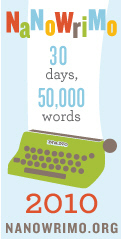 Work on my NaNoWriMo manuscript has slowed a bit more in the last few days as my wife and I get ready for Thanksgiving guests. Yep, a big part of that is cleaning up the house. My brother and his wife should arrive here from Orlando in less than an hour. So, the Sarabande manuscript sits now at 21,500 words.
Work on my NaNoWriMo manuscript has slowed a bit more in the last few days as my wife and I get ready for Thanksgiving guests. Yep, a big part of that is cleaning up the house. My brother and his wife should arrive here from Orlando in less than an hour. So, the Sarabande manuscript sits now at 21,500 words.A sequel to The Sun Singer , Sarabande features a young woman's lunar journey as she faces "the road of trials" en route to tracking down the only person she knows who can banish the ghost that has haunted her without mercy for three years.
Thank you to everyone participating in Blog Jog Day today. Visits are up on Malcolm's Round Table as people sprint through en route to as many blogs as they can find in one day. Today's post is Songs and Whispers of the Living Earth.
At least one of my friends is a bigger e-mail pack rat than I am. She sent me some information for Sarabande in February, but somehow I lost it. Fortunately, the e-mail was still in her SENT MESSAGES folder. What a break.
If you enjoy reading hero's journey novels, I would like to suggest the latest epic fantasy from author Seth Mullins, "Song of the Twice Born." I've posted a review of it on my website
Blog Jog Day Pop Quiz
Those of you enjoying the wonders of Blog Jog Day are, I'm sure, taking notes.
WARNING: YOUR SCORE ON THIS QUIZ GOES ON YOUR PERMANENT RECORD.
What kind of coffee does the Goddess drink? (a) Maxwell House, (b) Chase & Sanborn, (c) Hills Brothers, (d) Some Chicory-laden crap from New Orleans.Crows flying between Two Egg Florida and Amsterdam on a northeast heading, have a trip of: (a) 4571 miles, (b) 7145 miles, (c) 0 miles, since most Crows are too smart to do such a thing.J. K. Rowling has hinted that there might be another Harry Potter book. According to informed sources, the projected title is (a) Harry Potter Tries a Few Spells on Fergie, (b) Harry Potter Drinks Single Malt with Jock Stewart, (c) Harry Potter Finally Gets Lucky.True/False: If Captain Ahab met the Ancient Mariner, the result would be one whale of a story.Author and raconteur Malcolm R. Campbell was raised and/or reared by: (a) alligators, (b) hyenas, (c) three sporting girls in Abilene.True/False: If the Earth Mage met the Earth Sage, they would talk about parsley, rosemary and thyme.True grits are harvested during the dog days of August by: (a) knocking them out of trees with cane fishing polls, (b) using wild pigs to dig them up in the piney woods, (c) running over them with a 1969 Dodge Charger.Jock Stewart is best known for writing: (a) "Mrs. Danvers at Sunnybrook Farm," (b) "Banshees in the Cuckoo's Nest," (c) "Three Blind Mice and One Piece of Tail," (d) "The Worst of Jock Stewart,"True/False: Red ants can be substituted for paprika in an Illinois potato salad.True/False: Crater Lake was named after Judge Crater.Have a wonderful Thanksgiving.
--Malcolm
Published on November 21, 2010 14:02
November 18, 2010
Books! Buy Three, Get One Free
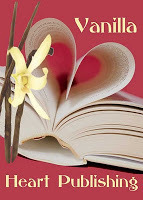
As the holidays approach, I think of books. I love giving them as gifts, matching up the perfect read with the perfect reader. My publisher is making it easier for me to do this with a THANKSGIVING SEASON SPECIAL: Buy three Vanilla Heart Publishing titles before December 17th, and you'll get one free!
Whenever I look at a book catalogue, I'm like the proverbial kid in the candy store. There's so much to choose from, I don't know where to begin. If I'm selecting one book--or one candy bar--making a choice, as thrilling as it is, suddenly eliminates all the other books. How can I say "no" to all but one?
As he grew older, my grandfather--who was an excellent carpenter--decided to cut back on the number of tools filling up his garage. "You can have any tool you want," he said. How simple could it be? All I had to do was walk up to the work bench where a thousand and one delights were arranged in drawers and rows and hangers on the peg board and select my heart's desire. Claw hammer or ball-peen hammer? Crosscut saw or rip saw? File or wood rasp? I froze. I wasn't really choosing just one, was I? I was saying "no" to a thousand.
My grandfather understood my dilemma, and rather than turning the choice into a mysterious test of my character and resolve, he handed me the rip saw. "You're old enough to use a man's saw. Take this home and try it out."
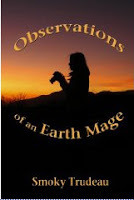 I was proud of the rip saw as I walked the four blocks from his house to my house. I wanted people to see me carrying it, but the day was getting late and everyone else was already inside cleaning up for dinner. Unlike a handful of gum drops, that rip saw lasted a long time. It was well made, and I always remembered how I came to have it.
I was proud of the rip saw as I walked the four blocks from his house to my house. I wanted people to see me carrying it, but the day was getting late and everyone else was already inside cleaning up for dinner. Unlike a handful of gum drops, that rip saw lasted a long time. It was well made, and I always remembered how I came to have it.Books are like that. But still, I have to choose. Consider the books written by these authors, and you'll see why I wish Vanilla Heart would get me off the hook and just pick my books for me: Vila SpiderHawk, Smoky Trudeau, Chelle Cordero, Marilyn Celeste Morris, Misha Crews, Robert Hays, L.E. Harvey, Victoria Howard, Collin Kelley, Sandy Nicks, Malcolm R. Campbell, Charmaine Gordon, Janet Lane Walters, Anne K. Albert, S.R. Claridge, Melinda Clayton, Barbra Annino.
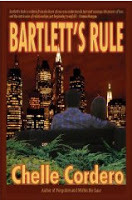 Fortunately, I already have copies of my books "The Sun Singer," "Garden of Heaven," and "Jock Stewart and the Missing Sea of Fire." Okay, that narrows things down. Before interviewing Vila SpiderHawk on Malcolm's Round Table, I read the first of her delightful "Forest Song" novels. Good, that narrows it down a bit more. And, before interviewing L. E. Harvey, I read "Imperfect" and got blown away by the ending. I'll be ready for the sequel when it's released.
Fortunately, I already have copies of my books "The Sun Singer," "Garden of Heaven," and "Jock Stewart and the Missing Sea of Fire." Okay, that narrows things down. Before interviewing Vila SpiderHawk on Malcolm's Round Table, I read the first of her delightful "Forest Song" novels. Good, that narrows it down a bit more. And, before interviewing L. E. Harvey, I read "Imperfect" and got blown away by the ending. I'll be ready for the sequel when it's released.Hmm, I've already read Smoky Trudeau's "The Cabin," "Redeeming Grace" and "Observations of an Earth Mage." What beauties they are. Oh. and Melinda Clayton's gritty "Appalachian Justice." And that's not all, but this post is starting to run on a a while.
Ultimately, this is how it works with books: Every time I read one, I'm ahead of the choice game until the author or the publisher or fate adds more books to the catalogue. I know I'll never have all the books any more than I could have all of grandfather's tools on that day I was old enough to carry home a rip saw. You'll never have all the books either, but I want you to know that I understand what you're going through while you're thinking "oh, this romance looks hot" and "this time travel thriller will be perfect with hot chocolate on a cold winter's night."
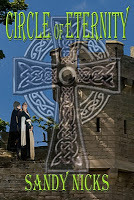 While getting a free book after buying three others is a great help, let me make a suggestion. Print out the list of Vanilla Heart books, tape it on the wall and--while blind folded--throw four darts. Whatever you hit, that's your selection. Take a deep breath and the force will be with you because, as Yoda said,
Do, or do not. There is no '
try.'
While getting a free book after buying three others is a great help, let me make a suggestion. Print out the list of Vanilla Heart books, tape it on the wall and--while blind folded--throw four darts. Whatever you hit, that's your selection. Take a deep breath and the force will be with you because, as Yoda said,
Do, or do not. There is no '
try.'
By the way, the deep breath isn't optional. Without it, you might puncture your wedding picture, Aunt Edith's sampler, or the smoke alarm and I'm here to tell you Christmas will be less merry after that happens..
--Malcolm
Published on November 18, 2010 19:51
November 15, 2010
A modest proposal for best books of the year list makers
"Halloween hadn't even ended this year before Christmas decorations made their appearance. Not even that progressive holiday creep-back, though, prepared me to see lists of the year's best books start coming through in early November, with no apologies to those few unfortunate authors with books scheduled for release in the final sixth of the year." -- Rebekah Denn, "The Christian Science Monitor," November 15, 2010
Most savvy publishers know better than to release cutting edge books after October because those books are destined for oblivion. Oblivion Day is earlier this year than it was last year.
Unlike movie moguls who can release a mega-movie 20 seconds before year's end in hopes that members of the Academy will still remember the film when it's time cast Oscars votes, publishers don't have that option. List makers claim "it's all been said and done" before it's all been said and done.
Within a few years, we'll be seeing the best books of the year lists coming out in October and then on Labor Day or during the Dog Days of August. Soon, there will be no labor at publishing houses after Labor Day because the fat ladies who create the lists will have already sung, off key or otherwise..
Clearly, a child of three can see where things are headed.
To keep that from happening (and you do know what that is) list makers and publishers should meet January first every year in a wink-and-nod conspiracy session and choose the prospective best books of the year in advance.
Then, publishers can release those books at their leisure without the insane rush to get them off the press prior to Oblivion Day. Even if some of the lists are published before the books are published, it won't matter. Readers will just assume the list makers got galleys, advance reader copies or slept with somebody.
Some readers will smell a rat that they haven't bothered to smell up to now. They will cry "foul" or "what the hell" or "the damn thing's rigged." But they won't be able to prove it. Publishers will be interviewed on Fox and list makers will be interviewed on CNN.
All the talking heads will proclaim that the lists are as pure as the driven snow, but that if they (the lists) are being tinkered with, then they (the publishers and list makers) will investigate and report back.
After the "investigation," the American public will be told "everything is okay." They will also be told that "according to informed sources, the accusations all came from writers who were more insane than usual and thought they'd gotten screwed when really they probably hadn't."
Since the Best Books of the Year lists already look like a fraud, wouldn't be easier just to make them fraudulent from day one? Like half-assed jobs, well-intentioned fraud saves time and energy. Then, when it comes to the best of the best of the best, we'll be worry free. The lists will be pure, but authorized, hooey.
Finally, we'll be able to take a grain of salt for what it is.
Most savvy publishers know better than to release cutting edge books after October because those books are destined for oblivion. Oblivion Day is earlier this year than it was last year.
Unlike movie moguls who can release a mega-movie 20 seconds before year's end in hopes that members of the Academy will still remember the film when it's time cast Oscars votes, publishers don't have that option. List makers claim "it's all been said and done" before it's all been said and done.
Within a few years, we'll be seeing the best books of the year lists coming out in October and then on Labor Day or during the Dog Days of August. Soon, there will be no labor at publishing houses after Labor Day because the fat ladies who create the lists will have already sung, off key or otherwise..
Clearly, a child of three can see where things are headed.
To keep that from happening (and you do know what that is) list makers and publishers should meet January first every year in a wink-and-nod conspiracy session and choose the prospective best books of the year in advance.
Then, publishers can release those books at their leisure without the insane rush to get them off the press prior to Oblivion Day. Even if some of the lists are published before the books are published, it won't matter. Readers will just assume the list makers got galleys, advance reader copies or slept with somebody.
Some readers will smell a rat that they haven't bothered to smell up to now. They will cry "foul" or "what the hell" or "the damn thing's rigged." But they won't be able to prove it. Publishers will be interviewed on Fox and list makers will be interviewed on CNN.
All the talking heads will proclaim that the lists are as pure as the driven snow, but that if they (the lists) are being tinkered with, then they (the publishers and list makers) will investigate and report back.
After the "investigation," the American public will be told "everything is okay." They will also be told that "according to informed sources, the accusations all came from writers who were more insane than usual and thought they'd gotten screwed when really they probably hadn't."
Since the Best Books of the Year lists already look like a fraud, wouldn't be easier just to make them fraudulent from day one? Like half-assed jobs, well-intentioned fraud saves time and energy. Then, when it comes to the best of the best of the best, we'll be worry free. The lists will be pure, but authorized, hooey.
Finally, we'll be able to take a grain of salt for what it is.
Published on November 15, 2010 19:31
November 7, 2010
First weekly NaNoWriMo Update
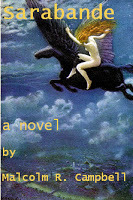 I have completed the first chapter of Sarabande, the sequel to my novel The Sun Singer that I am writing as my National Novel Writing Month project. At 946 words per day, my current word count is 6,688, well below the the 1,667 words per day I would need to write to reach 50,000 words by the last day of the month.
I have completed the first chapter of Sarabande, the sequel to my novel The Sun Singer that I am writing as my National Novel Writing Month project. At 946 words per day, my current word count is 6,688, well below the the 1,667 words per day I would need to write to reach 50,000 words by the last day of the month.The word count is low because I am typically a very slow writer in spite of my wish that I could write like the wind. Also, it has been many years since I wrote The Sun Singer, so it is taking more "fact checking" than I expected to make sure the opening scenes of Sarabande merge accurately with what I have already written about these characters.
Meanwhile, I notice that three of my NaNoWriMon writing buddies are moving along at flank speed. Zulmara's word count is 32,356, Flying Writer's count is 18, 750, and Pat Bertram's count is 13.159. Congratulations to them on their fast-typing fingers and co-operative muses.
I am relatively pleased with the rough draft of Sarabande at the end of chapter one. My protagonist (Sarabande) is embarking on a lunar journey in terms of her inner development throughout the novel. Physically, she has left the alternative universe of Pyrrha on a search for Robert Adams, the Sun Singer, in our world. She needs his help.
This story has been on my mind for some time. However, I was somewhat spooked by the idea of actually writing it, for then all the infinite probabilities had to collapse down to a specific plot. (It's always hard for my actual words to live up to the story as it lives in my imagination.) So, NaNoWriMo has been a catalyst, getting me started, regardless of my actual word count on November 30.
You may also like
NaNoWriMo Becomes NaNoWriMoSmokMo
Stuck? Step away from your manuscript for a few minutes
Vanilla Heart Publishing Super Saver E-Book Specials (my e-books and others for only $4.99 through November 16th)
--Malcolm
Published on November 07, 2010 13:36
October 31, 2010
Your Character's Voice
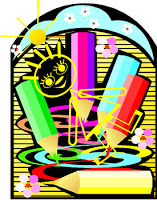 Many authors have trouble separating their own writing voices from those of their characters. This often happens, I think, when writers don't have a clear picture of each character: not just what they look like, but their mannerisms, likes and dislikes, motivations and--of course--what they sound like.
Many authors have trouble separating their own writing voices from those of their characters. This often happens, I think, when writers don't have a clear picture of each character: not just what they look like, but their mannerisms, likes and dislikes, motivations and--of course--what they sound like.At the more mundane level, a writer can give a character a pet phrase or a dialect or the kind of jargon typical of people in a certain profession or hobby. In The Sun Singer, my protagonist Robert Adams often uses the phrase "For Pete's sake," while the fiery young woman named Cinnabar frequently says, "Holy bear puke."
That's a start, though Robert and Cinnabar can hardly use those phrases in every sentence. A character's voice is more complex than a few pet phrases and idoms.
Some people move their hands a lot while talking. Some look your straight in the eye. Others lean in close or look at the ceiling or sky when trying to think of something or scratch their heads or fiddle with their hair or check their watches every few minutes or grin or squint or look around constantly to see who else might be listening.
Characters are Three Dimensional
Getting past, phrases, posture, and mannerisms, requires that the writer knows his characters very well and then is able to step out of the way while they speak. Cinnabar, for example, is gruff, suspicious, defensive, pragmatic and protective of her mother. How might somebody like that talk in certain situations?
Once you have a clear picture of your character and his/her motivations, attitudes, and history, the next step is allowing all that information to fade into the woodwork and to become instinctual for you while that character is talking. We do much of what we do on automatic pilot, so to speak. We don't think about how to shift gears in our car while driving, or how to balance ourselves on a bike while riding, or where the letters are on a keyboard while we're typing. Likewise, when we're allowing a character to speak, if we know them well, we don't have to keep looking at a list of their traits, mannerisms, and goals. We simply write.
Male Protagonists
So far, my protagonists have all been men. I felt confident as I got to know Robert Adams, Jock Stewart and David Ward, that I could step out of the way sufficiently to let not only their authentic voices come through, but everything else about them that makes them who they are.
While considering Sarabande, the sequel to The Sun Singer, I began to worry whether I would be able to write from a female point of view for an entire novel rather than simply shifting into it momentarily for Cinnabar in The Sun Singer, Siobhan in Garden of Heaven, and Monique in Jock Stewart and the Missing Sea of Fire. When I write in third person restricted, there's more than the character's thoughts and voice to consider. It's everything: all the other characters, the settings and the action as they come to the reader are filtered through the protagonist's eyes.
Perhaps you approach point of view differently. Even so, if you tend to write for female protagonists or male protagonists, then how would you suddenly switch gears for book-length fiction? If you're a man writing about men or a woman writing about women, you have a built-in edge. That "edge" disappears for me when I think about 50,000 or 100,000 words flowing through Sarabande's consciousness.
I know her well, for she has been there from the first draft of The Sun Singer many years ago. She was well defined in my mind when I wrote The Sun Singer and her motivations and hopes as she begins her lunar journey in Sarabande are clear to me now. Yet, I have worried about writing completely from a feminine perspective for an entire novel.
NaNoWriMo
I'm tired of worrying about it. I hope that in signing up for National Novel Writing Month, my goal of reaching 50,000 words by November 30 will make impossible to sit around wondering whether Sarabande's voice is coming through or not. The rush to simply write will force me out of the way, Time will tell.
--Malcolm

Published on October 31, 2010 14:00
October 30, 2010
Humor Contest at Humor Press
I scan C. Hope Clark's Funds of Writers and Small Markets newsletters each week for information about upcoming grants, markets and contests. Her latest Funds for Writers mentioned Humor Press and its bi-monthly humor-writing contest with a $10 entry fee. The top five entries will receive prizes between $100 to $20 and--along with other top entries--are published online.
Entries of up to 750 words are submitted via an online form with the fee to be paid via PayPal. The good news is, the material can have already appeared elsewhere. The October/November 2010 contest is now underway and includes an entry I uploaded a few minutes ago.
Writing in Clark's newsletter, author Jill Pertler said she enters this contest in spite of the fee for a variety of reasons, including the fact that the contest features "winners, finalists, semi-finalists and honorable mention entries on its website. Contest entrants are directed to the site to read the winning articles. I can post my article on my own website, but I'm willing to bet a nickel that I get a lot more hits by having my piece grouped together with a bunch of other really great humor pieces (on a well-frequented, well-known website). Every reader gained is a potential fan. I'll take all the exposure I can get."
That seemed reasonable, though I can't afford to enter a lot of contests and pay a lot of entry fees. So, I gave it a shot.
BookTour.Com
The page on my publisher's website with links to its author's pages on BookTour.com is getting a lot of hits. That prompted me to set up a BookTour.com page. Basically, you enter your name, bio, books and internet links and then use the page as a means of promoting upcoming events, virtual or otherwise. This is a good place for upcoming signings, talks and presentations as well as guest-post appearances on blogs and sites. It's easy to set up and it's free.
You May Also Like
Preparing for NaNoWriMo on Writer's Notebook
Have a great Hallowe'en weekend.
--Malcolm
Entries of up to 750 words are submitted via an online form with the fee to be paid via PayPal. The good news is, the material can have already appeared elsewhere. The October/November 2010 contest is now underway and includes an entry I uploaded a few minutes ago.
Writing in Clark's newsletter, author Jill Pertler said she enters this contest in spite of the fee for a variety of reasons, including the fact that the contest features "winners, finalists, semi-finalists and honorable mention entries on its website. Contest entrants are directed to the site to read the winning articles. I can post my article on my own website, but I'm willing to bet a nickel that I get a lot more hits by having my piece grouped together with a bunch of other really great humor pieces (on a well-frequented, well-known website). Every reader gained is a potential fan. I'll take all the exposure I can get."
That seemed reasonable, though I can't afford to enter a lot of contests and pay a lot of entry fees. So, I gave it a shot.
BookTour.Com
The page on my publisher's website with links to its author's pages on BookTour.com is getting a lot of hits. That prompted me to set up a BookTour.com page. Basically, you enter your name, bio, books and internet links and then use the page as a means of promoting upcoming events, virtual or otherwise. This is a good place for upcoming signings, talks and presentations as well as guest-post appearances on blogs and sites. It's easy to set up and it's free.
You May Also Like
Preparing for NaNoWriMo on Writer's Notebook
Have a great Hallowe'en weekend.
--Malcolm
Published on October 30, 2010 10:13
October 22, 2010
Smoky interviews me while I'm interviewing Lauren
It just happened.
While I was reading author L. E. Harvey's new novel Imperfect, Smoky Trudeau was reading my novel The Sun Singer. While the reading was, in part, for pleasure, it was also homework since neither Smoky nor I like to do blog interviews with authors based on generic questions.
I enjoyed reading about the strong female characters in Imperfect, and that set the stage for an interesting conversation with Lauren about her novels and her protagonists. My interview appeared this morning on Malcolm's Round Table. I hope you enjoy it.
When Smoky finished reading The Sun Singer, she asked for some background about the book and why I wrote it. They were good questions. She posted her review and interview this afternoon on Smoky on Books. I hope you enjoy this interview, too.
I had a good time asking the questions for one post and answering them for another.
Meanwhile, I like seeing the opposite sides of every coin. That includes taking long-time folk wisdom proverbs and turning them around. When I do this, "cut to the chase" becomes "chase to the cut." I like the way this shakes people up, including myself. Toss in a dash of free association, and you've got your creativity on Tabasco sauce! I posted these thoughts on Writer's Notebook this afternoon.
Changing streams in mid-horse, I love taking old songs and re-writing them in the form of dark and/or friendly parodies. Consequently, "St. James Infirmary" becomes the "Hack Writer's Blues." I invite you to sing it, especially if there are days when 11 p.m. rolls around and you don't know where your muse is.
Have a pleasant weekend and take time to smell the coffee and/or the roses.
Malcolm
While I was reading author L. E. Harvey's new novel Imperfect, Smoky Trudeau was reading my novel The Sun Singer. While the reading was, in part, for pleasure, it was also homework since neither Smoky nor I like to do blog interviews with authors based on generic questions.
I enjoyed reading about the strong female characters in Imperfect, and that set the stage for an interesting conversation with Lauren about her novels and her protagonists. My interview appeared this morning on Malcolm's Round Table. I hope you enjoy it.
When Smoky finished reading The Sun Singer, she asked for some background about the book and why I wrote it. They were good questions. She posted her review and interview this afternoon on Smoky on Books. I hope you enjoy this interview, too.
I had a good time asking the questions for one post and answering them for another.
Meanwhile, I like seeing the opposite sides of every coin. That includes taking long-time folk wisdom proverbs and turning them around. When I do this, "cut to the chase" becomes "chase to the cut." I like the way this shakes people up, including myself. Toss in a dash of free association, and you've got your creativity on Tabasco sauce! I posted these thoughts on Writer's Notebook this afternoon.
Changing streams in mid-horse, I love taking old songs and re-writing them in the form of dark and/or friendly parodies. Consequently, "St. James Infirmary" becomes the "Hack Writer's Blues." I invite you to sing it, especially if there are days when 11 p.m. rolls around and you don't know where your muse is.
Have a pleasant weekend and take time to smell the coffee and/or the roses.
Malcolm
Published on October 22, 2010 13:37
October 20, 2010
Does another author's journey make a good spiritual self-help book?
"A journey is a person in itself; no two are alike. And all plans, safeguards, policing, and coercion are fruitless. We find that after years of struggle that we do not take a trip; a trip takes us." -- John Steinbeck
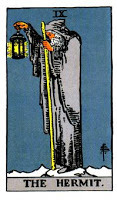 When I was in grade school and middle school, the school libraries were filled with biographies of famous men and women. I read them all. Years later, when my wife and I first met, I learned that she also read them all. On the mundane level, some people ask us how we happen to know such a wide variety of trivia. That's where it began.
When I was in grade school and middle school, the school libraries were filled with biographies of famous men and women. I read them all. Years later, when my wife and I first met, I learned that she also read them all. On the mundane level, some people ask us how we happen to know such a wide variety of trivia. That's where it began.
Ah, the inspiration of great biographies
More importantly, I was inspired by those journeys. It helped me to read about them. I saw Edison who, in spite of the failures of one prospective light bulb filament after another, never gave up. I saw Helen Keller who couldn't see at all, yet her perceptions of the world were often more accurate than those with 20/20 vision. Perhaps, as so many cartoons and comic strips have shown, such people had light bulbs flashing inside their heads, presenting them with ideas the rest of us were too distracted by the five senses to see. Yet, being inspired by the journey of another man or woman doesn't mean I should walk the same path. I do not want somebody to ask, "do you see what I see?" for that is not relevant to what my journey intends for me to see.
For one thing, as Joseph Campbell suggests, I should be blazing my own path. If I follow another too closely, perhaps I'm simply copying what s/he doesI rather than internalizing the true inner journey itself. Then, too, if I allow my expectations to be confined by the self-help author's experience, I am seeing nothing new, only what I have been told might be there. What a developmental limitation that is!
Coaches and other gurus who go bump in the night
These are the days of coaches, empowerment, and people talking about these current times being the moment of great spiritual changes. I cannot speak to that, though I take note of the fads. This morning, I read the review of a spiritual self-help book that was also a chronicle of the author's personal journey. The journey itself was inspiring, the reviewer said, but the spirituality was lacking.
The lack, so obvious to a reviewer reading without desperation, is common to many books about the journeys of other people that also purport to be spiritual textbooks for the rest of us. Often, the dream material and personal symbolism of the author has no world-wide usage or validation. While it makes sense within the context of one individual's spiritual and psychological life, it isn't universal.
Therein lies the problem of overly personal spiritual books. The authors often speak out of context of the whole, seldom including comparative references to religion, other spiritual "systems," mythology, archetypal dream work, or other sources that allow readers to compare and contrast the suggestions with those made by other spiritual authors. When the reader sees an affirmation using symbols and images that only have great meaning to the self-help book's author, what is s/he to do with them?
At some point, the reader must be able to say: this poetic language has no effect on my life, no matter how meaningful it was to the author; or, all I'm seeing here are platitudes rather than spiritual techniques.
Spiritual self-help books are often beautifully written and illustrated, and then blurbed and reviewed by other spiritually inclined authors. This sells books, yet with false validation. The positive blurb on the back of a book does not mean that Spiritual Author ABC actually tried the techniques of Spiritual Author XYZ and found them to actually work, much less to be more effective than widely known techniques that have been practiced for millions of people for years.
My own approach to spirituality belongs to me. Yes, you will find hints about it in my novels, but not prescriptions or recipes. I can't speak for you. No other spiritual author can speak for me, no matter how nice his or her book looks on the shelf at the local bookstore. The more I read, meditate and practice, the more my intuition tells me whether the book I'm tempted to buy really fits my journey. If not, I'll read it for the inspiration alone, which is fine as long as it doesn't become a manual.
--Malcolm

 When I was in grade school and middle school, the school libraries were filled with biographies of famous men and women. I read them all. Years later, when my wife and I first met, I learned that she also read them all. On the mundane level, some people ask us how we happen to know such a wide variety of trivia. That's where it began.
When I was in grade school and middle school, the school libraries were filled with biographies of famous men and women. I read them all. Years later, when my wife and I first met, I learned that she also read them all. On the mundane level, some people ask us how we happen to know such a wide variety of trivia. That's where it began.Ah, the inspiration of great biographies
More importantly, I was inspired by those journeys. It helped me to read about them. I saw Edison who, in spite of the failures of one prospective light bulb filament after another, never gave up. I saw Helen Keller who couldn't see at all, yet her perceptions of the world were often more accurate than those with 20/20 vision. Perhaps, as so many cartoons and comic strips have shown, such people had light bulbs flashing inside their heads, presenting them with ideas the rest of us were too distracted by the five senses to see. Yet, being inspired by the journey of another man or woman doesn't mean I should walk the same path. I do not want somebody to ask, "do you see what I see?" for that is not relevant to what my journey intends for me to see.
For one thing, as Joseph Campbell suggests, I should be blazing my own path. If I follow another too closely, perhaps I'm simply copying what s/he doesI rather than internalizing the true inner journey itself. Then, too, if I allow my expectations to be confined by the self-help author's experience, I am seeing nothing new, only what I have been told might be there. What a developmental limitation that is!
Coaches and other gurus who go bump in the night
These are the days of coaches, empowerment, and people talking about these current times being the moment of great spiritual changes. I cannot speak to that, though I take note of the fads. This morning, I read the review of a spiritual self-help book that was also a chronicle of the author's personal journey. The journey itself was inspiring, the reviewer said, but the spirituality was lacking.
The lack, so obvious to a reviewer reading without desperation, is common to many books about the journeys of other people that also purport to be spiritual textbooks for the rest of us. Often, the dream material and personal symbolism of the author has no world-wide usage or validation. While it makes sense within the context of one individual's spiritual and psychological life, it isn't universal.
Therein lies the problem of overly personal spiritual books. The authors often speak out of context of the whole, seldom including comparative references to religion, other spiritual "systems," mythology, archetypal dream work, or other sources that allow readers to compare and contrast the suggestions with those made by other spiritual authors. When the reader sees an affirmation using symbols and images that only have great meaning to the self-help book's author, what is s/he to do with them?
At some point, the reader must be able to say: this poetic language has no effect on my life, no matter how meaningful it was to the author; or, all I'm seeing here are platitudes rather than spiritual techniques.
Spiritual self-help books are often beautifully written and illustrated, and then blurbed and reviewed by other spiritually inclined authors. This sells books, yet with false validation. The positive blurb on the back of a book does not mean that Spiritual Author ABC actually tried the techniques of Spiritual Author XYZ and found them to actually work, much less to be more effective than widely known techniques that have been practiced for millions of people for years.
My own approach to spirituality belongs to me. Yes, you will find hints about it in my novels, but not prescriptions or recipes. I can't speak for you. No other spiritual author can speak for me, no matter how nice his or her book looks on the shelf at the local bookstore. The more I read, meditate and practice, the more my intuition tells me whether the book I'm tempted to buy really fits my journey. If not, I'll read it for the inspiration alone, which is fine as long as it doesn't become a manual.
--Malcolm
Published on October 20, 2010 11:45
October 18, 2010
New Book Review Blog: Smoky on Books
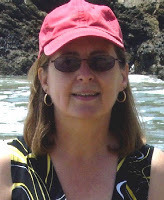 Author Smoky Trudeau (The Cabin, Redeeming Grace) launched a new book review blog called Smoky on Books on Sunday. Her first post takes a look at Steinbeck's The Acts of King Arthur and His Noble Knights.
Author Smoky Trudeau (The Cabin, Redeeming Grace) launched a new book review blog called Smoky on Books on Sunday. Her first post takes a look at Steinbeck's The Acts of King Arthur and His Noble Knights.Here's an excerpt:: "When you think of John Steinbeck characters, who comes to mind? Lenny and George from Of Mice and Men? The Joad family from The Grapes of Wrath? Doc from Cannery Row? Or, perhaps, young Jody Tiflin and Billy Buck from The Red Pony? How about Arthur, Merlyn, Lancelot, and Morgan le Fay of Camelot fame? No?"
Coming Soon: The blog will upcoming titles, new titles, old classics and other books on Smoky's favorites shelf. Upcoming titles include The Sun Singer (me), Forest Song, Little Mother (Vila Spiderhawk) and Mandala (Pearl S. Buck).
Like me, Smoky is an author at Vanilla Heart Publishing. She's also a writing coach, editor and Earth Mage. I'm looking forward to seeing her new blog unfold this winter while the weather becomes too cold for her to spend much time hiking in the Sierras or exploring tidal pools along the Pacific Coast.
-
--Malcolm
The e-book versions of The Sun Singer, Jock Stewart and the Missing Sea of Fire, Garden of Heaven: an Odyssey and other VHP books are now available for only $4.99 in Vanilla Heart's Seasonal Specials page.
Published on October 18, 2010 12:50
October 17, 2010
Jeopardy Around the Dinner Table
As any avid aficionado can tell you in 30 seconds, Art Flemming hosted the first episode of the original Jeopardy quiz show in 1964. The show ran until 1975.
Years before that, my father was hosting his own trivia game show around our family's dinner table. Well-versed in a wide variety of subjects, Dad could pose questions for my two brothers and I for a meal-time hour without running out of things to ask.
Who won the world series in 1955? The Brooklyn Dodgers. (I knew that because I was a Dodgers fan. My brother Barry, who had apparently memorized all baseball stats since the game began, usually knew all the other baseball answers.)
What's the capital of Montana? Helena. (Mother, who seldom answered unless my brothers and I were stumped, knew all the capitals.)
Rembrandt painted a picture of a ship at sea in a storm? Any idea what it was? "The Storm on the Sea of Galilee." (My brother Doug, who would ultimately become a college art professor answered most of the artist questions except for the most obvious.)
Does anyone want more mashed potatoes? Yes. (Mother had to remind us to take time to eat.)
What's the French word for "three." Trois. (All of us knew that since Dad was teaching us to count to ten--whether we were angry or not--in multiple languages. Mother, who took French courses in school, had to remind us that "Trois" was NOT (and still isn't) pronounced "Troyce.")
We called our game "Questions" and there were no prizes except for Dad's smile when we answered questions correctly. Being first by shouting out "Troyce" or "The Brooklyn Dodgers" was half the fun of the game. We had one handicap that the contestants on Art Flemming's and Alex Trebek's versions of the TV show didn't have to contend with. We were eating and we weren't permitted to talk with our mouths full.
"Questions" was aired randomly at the family dinner table from the mid-1950s until I left home for grad school in 1967. We tended to play the game at Sunday dinner since the meal was more relaxed and there were fewer homework assignments and other chores pending. As we grew older, the scope and complexity of the questions increased and was often mysteriously linked to courses we were taking in school.
When there was a lull in the official questions, my brothers an I tended to lighten things up with fake questions like:
What year did the Seneca Squids join the National Football League?
What famous artist painted Mars on the Half Shell?
Is Kim Novak married to William Holden or Jimmy Stewart?
The answers, of course, are "never," "no such painting," and "neither." While Dad couldn't be easily fooled by our trick questions, his questions constantly made us want to learn more, to be better prepared, to be--as such people used to be called--"Renaissance Men" when it came to having a sound general knowledge of a wide variety of subjects.
"Questions" was part of our on-going liberal arts education long before Jeopardy and Trivial Pursuit were a gleam in anyone's eye. I grew up in a household full of books, homemade games and wide-ranging dinner table competitions and discussions. I remember those days well even though such household pastimes and a liberal arts approach to lifelong learning are essentially gone with the wind.
Who played Ashley Wilkes in that movie about Scarlett what's her name? Leslie Howard (Dad then followed up the question with "What role did he play in 'The Scarlet Pimpernel?'" My brothers and I didn't have a clue, prompting the moderator of "Questions" to start clearing the dishes, suggesting that anyone who thought Leslie Howard was no more than Ashley Wilkes could just take a turn cleaning up the kitchen.)
We learned quickly that Dad wasn't a fan of "Gone with the Wind" and judged our responses to Leslie Howard and Olivia de Havilland kinds of questions with due care.
-
Malcolm R. Campbell's novels from Vanilla Heart Publishing include "The Sun Singer." When we gave books as gifts to each other in our family, we always inscribed them. My mother passed away in 1986 and my father died in 1987, many years before "The Sun Singer" was published. Fortunately, both of them read the book in manuscript form. I inscribed the typewritten copy, a Christmas gift in 1982, "To Dad - A seeker of wisdom on the path who, in walking it, enriched it." A journalist and textbook author by career, he was a Renaissance man by avocation, thereby giving me a role model that is still a strong one in spite of the fact that I really do like "Gone With The Wind."
Years before that, my father was hosting his own trivia game show around our family's dinner table. Well-versed in a wide variety of subjects, Dad could pose questions for my two brothers and I for a meal-time hour without running out of things to ask.
Who won the world series in 1955? The Brooklyn Dodgers. (I knew that because I was a Dodgers fan. My brother Barry, who had apparently memorized all baseball stats since the game began, usually knew all the other baseball answers.)
What's the capital of Montana? Helena. (Mother, who seldom answered unless my brothers and I were stumped, knew all the capitals.)
Rembrandt painted a picture of a ship at sea in a storm? Any idea what it was? "The Storm on the Sea of Galilee." (My brother Doug, who would ultimately become a college art professor answered most of the artist questions except for the most obvious.)
Does anyone want more mashed potatoes? Yes. (Mother had to remind us to take time to eat.)
What's the French word for "three." Trois. (All of us knew that since Dad was teaching us to count to ten--whether we were angry or not--in multiple languages. Mother, who took French courses in school, had to remind us that "Trois" was NOT (and still isn't) pronounced "Troyce.")
We called our game "Questions" and there were no prizes except for Dad's smile when we answered questions correctly. Being first by shouting out "Troyce" or "The Brooklyn Dodgers" was half the fun of the game. We had one handicap that the contestants on Art Flemming's and Alex Trebek's versions of the TV show didn't have to contend with. We were eating and we weren't permitted to talk with our mouths full.
"Questions" was aired randomly at the family dinner table from the mid-1950s until I left home for grad school in 1967. We tended to play the game at Sunday dinner since the meal was more relaxed and there were fewer homework assignments and other chores pending. As we grew older, the scope and complexity of the questions increased and was often mysteriously linked to courses we were taking in school.
When there was a lull in the official questions, my brothers an I tended to lighten things up with fake questions like:
What year did the Seneca Squids join the National Football League?
What famous artist painted Mars on the Half Shell?
Is Kim Novak married to William Holden or Jimmy Stewart?
The answers, of course, are "never," "no such painting," and "neither." While Dad couldn't be easily fooled by our trick questions, his questions constantly made us want to learn more, to be better prepared, to be--as such people used to be called--"Renaissance Men" when it came to having a sound general knowledge of a wide variety of subjects.
"Questions" was part of our on-going liberal arts education long before Jeopardy and Trivial Pursuit were a gleam in anyone's eye. I grew up in a household full of books, homemade games and wide-ranging dinner table competitions and discussions. I remember those days well even though such household pastimes and a liberal arts approach to lifelong learning are essentially gone with the wind.
Who played Ashley Wilkes in that movie about Scarlett what's her name? Leslie Howard (Dad then followed up the question with "What role did he play in 'The Scarlet Pimpernel?'" My brothers and I didn't have a clue, prompting the moderator of "Questions" to start clearing the dishes, suggesting that anyone who thought Leslie Howard was no more than Ashley Wilkes could just take a turn cleaning up the kitchen.)
We learned quickly that Dad wasn't a fan of "Gone with the Wind" and judged our responses to Leslie Howard and Olivia de Havilland kinds of questions with due care.
-
Malcolm R. Campbell's novels from Vanilla Heart Publishing include "The Sun Singer." When we gave books as gifts to each other in our family, we always inscribed them. My mother passed away in 1986 and my father died in 1987, many years before "The Sun Singer" was published. Fortunately, both of them read the book in manuscript form. I inscribed the typewritten copy, a Christmas gift in 1982, "To Dad - A seeker of wisdom on the path who, in walking it, enriched it." A journalist and textbook author by career, he was a Renaissance man by avocation, thereby giving me a role model that is still a strong one in spite of the fact that I really do like "Gone With The Wind."
Published on October 17, 2010 10:52



